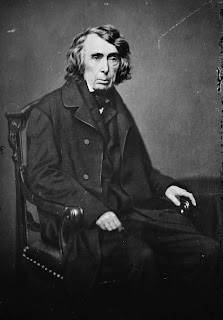MARCH 6, 1857:
Dred Scott v.
Sandford, 60 U.S. 393 (1857), also
known as the “Dred Scott Decision,” was a landmark decision by the U.S. Supreme
Court.
It made two main rulings. The first ruling was that African-Americans
were not citizens, and therefore had no standing to sue in federal court. The
second ruling was that the federal government had no power to regulate slavery
in any territory acquired subsequent to the creation of the United States.
It is widely regarded as the worst decision ever made by the
Supreme Court.
Not only did it consign Blacks (slave and free) to the ash heaps of humanity, but it legally invalidated
the Kansas-Nebraska Act and the Missouri Compromise both, opening the entire
nation to the introduction or re-introduction or endless continuation of
slavery.
Dred
Scott, an African-American slave, had asked a United States Circuit Court to
award him his freedom because he and his master had resided in a State
(Illinois) and a territory (Wisconsin Territory) where slavery had been banned.
Chief Justice Roger Taney, writing for the court, held that Scott, as a person
of African ancestry, was not a citizen of the United States and therefore had
no right to sue in federal court:
“A black man, he wrote,
has no rights which a white man is bound
to respect,” Taney opined.
This holding was contrary to the practice of numerous States
at the time, particularly Free States, where free blacks did in fact enjoy the
rights of citizens, such as the right to vote and hold public office.
In what
is sometimes considered mere obiter dictum, the Court went on to hold that
Congress had no authority to prohibit slavery in federal territories because
slaves are personal property and the Fifth Amendment to the Constitution
protects property owners against deprivation of their property without due
process of law.
In one fell swoop based on skin tone, Taney, a Marylander, and
the longest-serving Chief Justice to that time, known until then for his
reasoned judicial work, destroyed his legacy and the nation by stripping free
men of their rights, stripping slaves of any legal recourse for their woes,
undoing Congressional power over the States and Territories, and making the
Civil War all but inevitable.


No comments:
Post a Comment